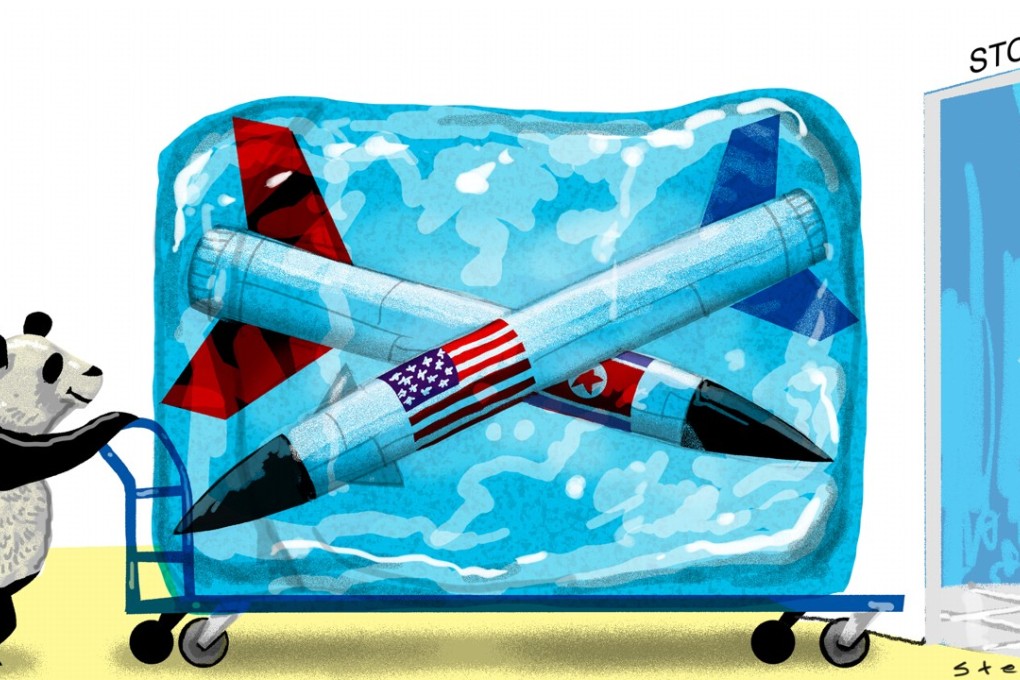Why China is best-placed to cool the war rhetoric between Kim Jong-un and Donald Trump
John Barry Kotch says third-party diplomacy offers the best hope after the US and North Korean leaders ramped up their missile threats

In his landmark study, The Origins of the Korean War, historian Bruce Cumings reflected on the “strange fate [which] had brought a one-time farm boy from Golconda, Illinois, Lt Gen John Hodge, to rule over the fortunes of 15 million Koreans”.
A three-star combat veteran of the Pacific war, Hodge arrived in Korea in September 1945 as commander of the XXIV Corps, to plant the American flag on the peninsula as well as staunch the flow south of Colonel General Ivan Chistyakov’s 25th Red Army at the 38th parallel: the start of a three-year US military occupation of South Korea that eventually set the stage for the Korean war.
History has much to teach about crises, and miscalculation in confronting them
Watch: George W Bush reveals the ‘Axis of Evil’
Dwight Eisenhower, the five-star US general who became president, noted that “every war will surprise you” – and the Korean war was no exception.
